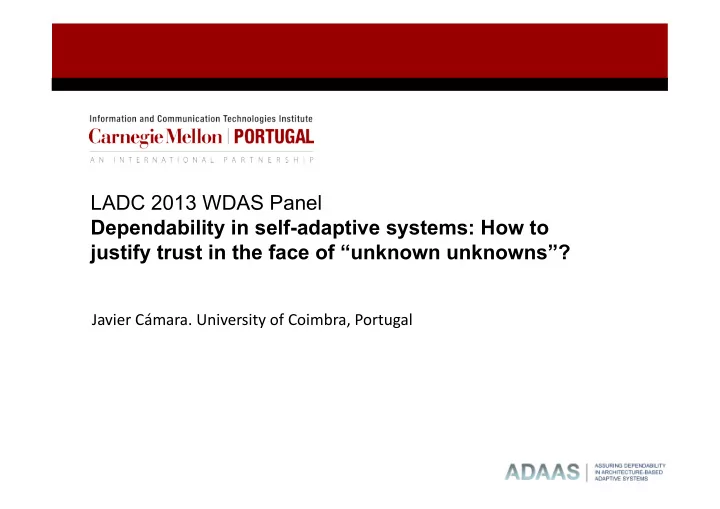

LADC 2013 WDAS Panel Dependability in self-adaptive systems: How to justify trust in the face of “unknown unknowns”? Javier'Cámara.'University'of'Coimbra,'Portugal'
Unknown&Unknowns&(UnkUnks)& “To know that we know what we know and that we do not know what we do not know — that is true knowledge” - Confucius “In epistemology and decision theory, the term unknown unknown refers to circumstances or outcomes that were not conceived of by an observer at a given point in time.” - Wikipedia 2
Knowledge&and&Awareness& David Hillson. Exploiting Future Uncertainty: Creating Value from Risk Gower Publishing. 3
Uncertainty& Type 1: Known Unknowns Explore boundaries of uncertainty Understand potential impact Implement appropriate response mechanisms Type 2: Unknown Unknowns Truly unknown: cannot be described Impact can only be assessed a posteriori Can only be dealt with reactively Tacoma Narrows Bridge, Nov. 7 th , 1940 4
Trust&in&the&Face&of&Unkown&Unknowns& Can trust be justified in the face of Unknown Unknowns? No, but trust can be improved: Proactive reduction of Unknown Unknowns Exploration and learning about the domain Exhaustive experimentation Design maximizing flexibility Interfaces for cooperative decision-making Improvement of adaptive capabilities over time ( e.g. , machine learning) 5
Recommend
More recommend